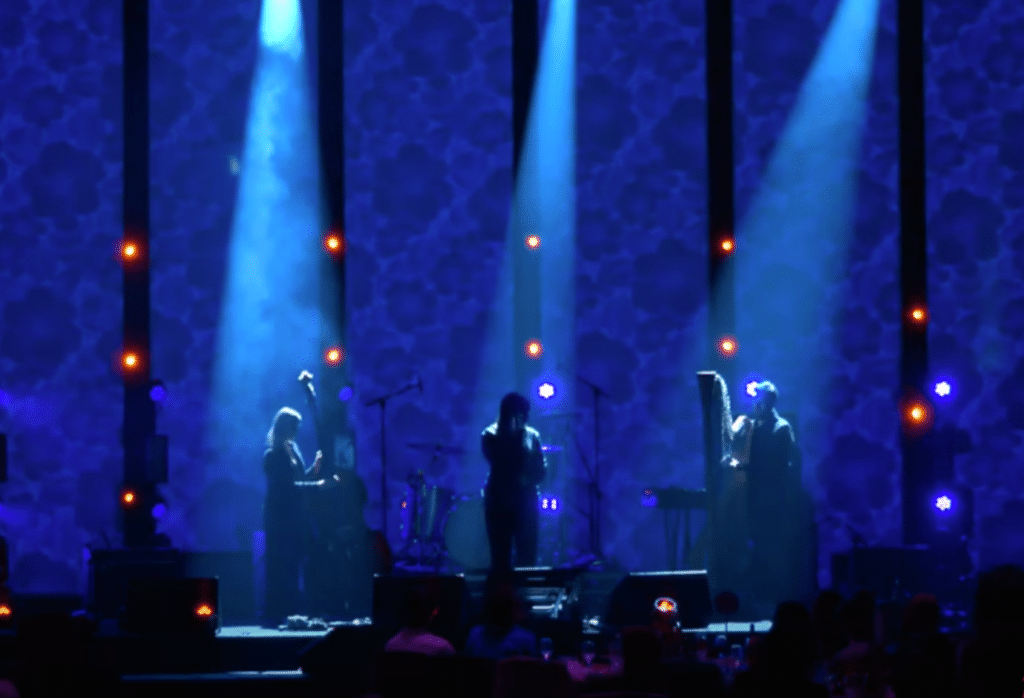Just two women took home awards at this year’s APRA Music Awards, prompting the organisation behind the awards show to acknowledge it must “do more” to address the glaring gender disparity. Of the two women who an award, only one hailed from Australia.
Sia took home Most Performed Australian Work Overseas for her single “Unstoppable” while the award for Most Performed International Work went to none other than Taylor Swift for her song, “Anti-Hero.” There were 17 awards in total.
APRA AMCOS, the music rights management organisation behind the awards, addressed the evening’s lack of diversity in a statement on Instagram, acknowledging there was “more to do to address the disparity in the industry of male to women, non-binary and gender diverse award winners.”
“We must continually question the absence of diversity in every facet of the industry whether in rooms, executive offices, on stages, or across airwaves and streaming platforms and commit to amplifying the entirety of Australia’s musical brilliance,” the statement read.
The statement goes on to admit that changes “require a concerted effort” across industry and society, and that “this is not easy.”
It’s worth noting that the make up of the organisation’s executive and senior staff don’t represent the objectives issued in this statement (according to their website, most of them are white, and only 10 out of the almost 30 roles are filled by women).
Irish-Australian singer songwriter, Áine Tyrrell commented on the post, calling the it “disappointing as it’s the typical “we have to do better” cocktail mixed with a side of let’s blame the whole industry so we don’t actually have to commit TO QUOTAS and CHANGE.”
“A better response would be ‘In 2025 we will be gender parity in our awards’. Full stop. Ye are the peak body YOU have the power to actually do that.”
The gender-imbalanced list of this year’s winners highlights the male-dominated music industry in Australia.
Vicki Gordon, founding executive producer at Australian Women in Music Awards, said the awards are a reflection of the current state of play in the country’s music industry.
“It’s basically impossible for Australian women to win because it’s almost impossible to get the airplay and streaming stats needed to qualify,” she told Women’s Agenda.
“This combined with the staggering gender statistics coming to light for music festival line ups dominated, sometimes, entirely by male artists, male musicians, male techs and male lead bands have placed the industry at a critical juncture.”
“The roll on effect is reflected in the absence of women performing on stage, working as operators and designers in front of house audio and lighting, as mixing engineers and in other technical areas, back stage as stage managers, roadies, behind the scenes and more.”
For many female and non-binary artists, working in music is a challenging enterprise charged with gender discrimination, sexual harassment, bias and under-resourcing. Several studies have revealed the pervasive levels of abuse and discrimination women working in music face, while many attempt to analyse these behaviours and work out how they can be stopped.
In the UK, a recent study revealed that more than a third of female artists women have experienced sexual harassment while working in the music industry.
A significant barrier to women starting and sustaining a career in the music industry is that “gatekeeper” roles (programmers, promoters and agents) are mostly held by men.
“The consequences of this range from women not being given work or promoted due to their gender, having to change something about themselves in order to be accepted or treated as a commodity rather than an artist with intrinsic value,” one report from AWMA found earlier this year.
“Female artists are routinely undervalued and undermined, endure a focus on their physical appearance in a way that men are not subjected to, and have to work far harder to get the recognition their ability merits. Despite increases in representation, discrimination and misogyny remain endemic. These concerns are intensified for women faced with intersectional barriers, particularly racial discrimination.”
The report, titled “Misogyny in Music” contained more than 30 recommendations, including demanding that record labels publish a roster on the diversity of their talents, parent leave policies for freelance artists, licensing recording studios that embed sexual harassment risk assessments and better reporting avenues to ensure accountability for misconduct.
Gordon believes that gender equality needs to be adopted as a core music industry value if we seek a positive, diverse, inclusive music culture.
“Safety must take priority for the sustainability and growth of the sector,” she said. “Women and women’s music organisations must be supported and gender equality criteria must be used in deciding public funding outcomes.”
Since its establishment five years ago, Australian Women in Music has built an alternate platform for female and non-binary artists and music practitioners.
Gordon said the organisation aims to address gender biases, break down cultural barriers and remove negative stereotypes.
“[The stereotypes] have prevented women and diverse minorities from succeeding across all areas of industry for decades,” she said. “Women are over mentored and under promoted and this needs to change. No more platitudes, no more excuses and no more repetitive reform recommendations which lead to nothing.”
This week, Gordon has called on Creative Australia to work with AWMA to facilitate a national approach to gender equality as part of this year’s AWMA Conference Program in Brisbane in October.


